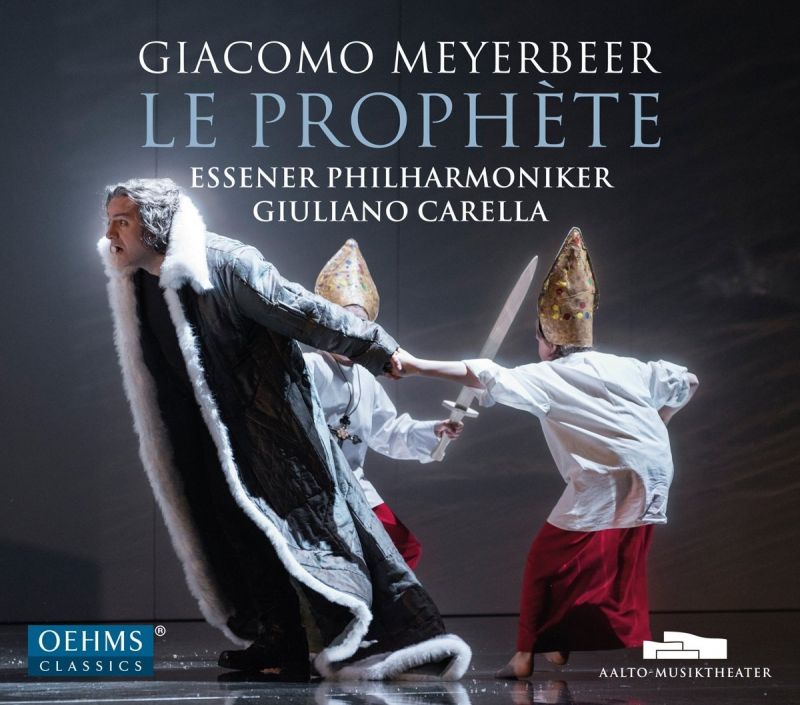MEYERBEER Le Prophète
View record and artist detailsRecord and Artist Details
Composer or Director: Giacomo Meyerbeer
Genre:
Opera
Label: Oehms
Magazine Review Date: 05/2018
Media Format: CD or Download
Media Runtime: 217
Mastering:
DDD
Catalogue Number: OC971

Tracks:
| Composition | Artist Credit |
|---|---|
| (Le) Prophète |
Giacomo Meyerbeer, Composer
Aalto-Musiktheaters Extrachor Aalto-Musiktheaters Kinderchor Aalto-Musiktheaters Opernchor Aalto-Musiktheaters Solisten Albrecht Kludszuweit, Jonas, Tenor Essen Philharmonic Orchestra Giacomo Meyerbeer, Composer Giuliano Carella, Conductor John Osborn, Jean de Leyde, Tenor Karel Martin Ludvik, Graf von Oberthal, Bass-baritone Lynette Tapia, Berthe, Soprano Marianne Cornetti, Fidès, Mezzo soprano Pierre Doyen, Mathisen, Baritone Tijl Faveyts, Zacharie, Bass |
Author: Mike Ashman
If you love Rossini’s Comte Ory, enjoy the stronger parts of Rienzi and are open-minded about the apparent dramaturgical gaps in Il trovatore, you should feel at home with Le Prophète, Meyerbeer and Scribe’s very delayed follow-up (1849) to Les Huguenots. Not so well-meaning interventions by the premiere tenor’s wife, casting disputes and the inevitable Paris problem of getting the audience home at a reasonable hour contributed both to the delay and to musical cuts and changes, many of them (including the presence of a saxophone in Berthe’s death scene) restored here in this first recording of an ‘original version’.
It’s no small credit to Essen’s Aalto Musiktheater to mount such an evidently well-studied performance of this large-scale show. The men do better than the women. While Osborn is fully in command of the tessitura (and power) of Jean de Leyde – and is especially clear in text – Cornetti lacks some of the almost insolent virtuosity of Marilyn Horne in the old rival Sony set, especially at the top of the voice. And Tapia’s Berthe has sweet high notes but feels a little underpowered. (The saxophone moment in her Act 5 ‘Déjà mon oeil s’éteint’ sounds inauthentically bluesy now but may have had an effect rather like Donizetti’s glass harmonica in Lucia to 1840s ears.) The male Anabaptist trio are certainly on the case and maestro Carella brings a nice (and rather French) flexibility to the score, making more of a unity of the piece than the grander and more formal Lewis on Sony. The live recording from three shows last spring copes comfortably with the biggest moments and offstage perspectives and, sensibly, omits applause. Oehms’s booklet omits an English translation of the libretto or links to find one – a shame. Nevertheless warmly recommended, especially to the curious about opera’s history
Discover the world's largest classical music catalogue with Presto Music.

Gramophone Digital Club
- Digital Edition
- Digital Archive
- Reviews Database
- Full website access
From £8.75 / month
Subscribe
Gramophone Full Club
- Print Edition
- Digital Edition
- Digital Archive
- Reviews Database
- Full website access
From £11.00 / month
Subscribe
If you are a library, university or other organisation that would be interested in an institutional subscription to Gramophone please click here for further information.





